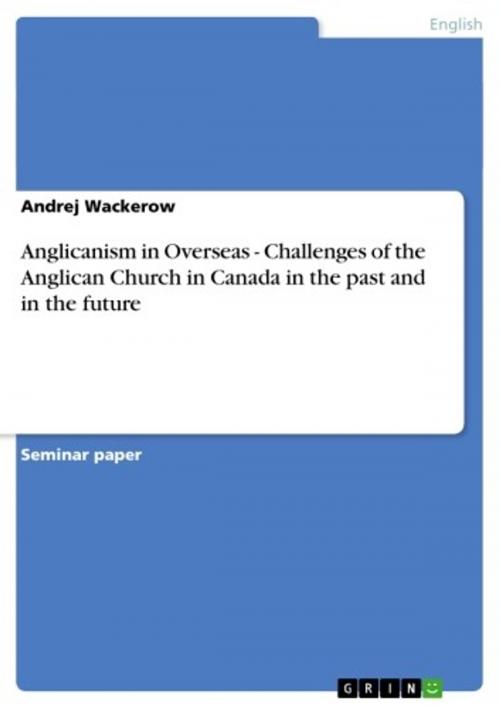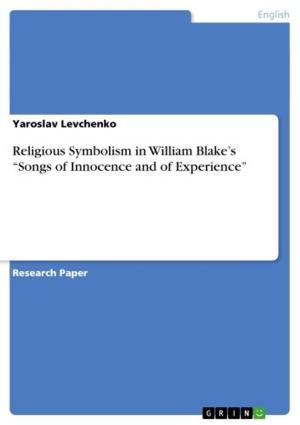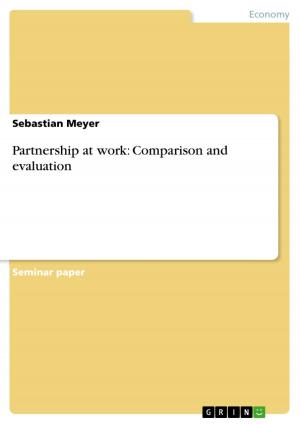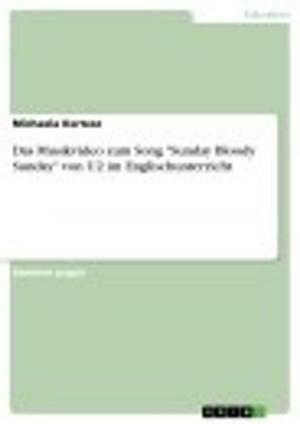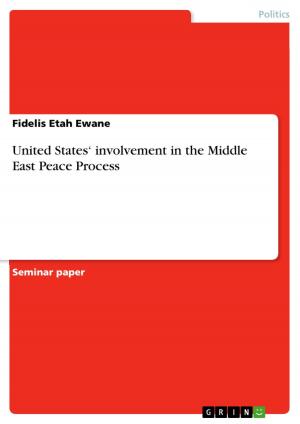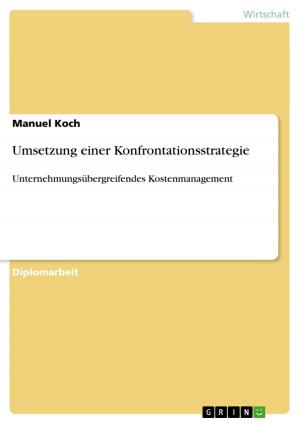Anglicanism in Overseas - Challenges of the Anglican Church in Canada in the past and in the future
Challenges of the Anglican Church in Canada in the past and in the future
Nonfiction, Reference & Language, Study Aids, ESL, Foreign Languages| Author: | Andrej Wackerow | ISBN: | 9783638290951 |
| Publisher: | GRIN Publishing | Publication: | July 13, 2004 |
| Imprint: | GRIN Publishing | Language: | English |
| Author: | Andrej Wackerow |
| ISBN: | 9783638290951 |
| Publisher: | GRIN Publishing |
| Publication: | July 13, 2004 |
| Imprint: | GRIN Publishing |
| Language: | English |
Seminar paper from the year 2004 in the subject English Language and Literature Studies - Culture and Applied Geography, grade: 2,3 (B), University of Potsdam (Anglistics/ American Studies), course: PS: Religions in Multicultural Britain, 11 entries in the bibliography, language: English, abstract: 'As the Anglican Communion enters the third millennium of Christian history, it is a good time to reflect upon the first 450 years of history ( . . . ) as a national church, and subsequently, as an Anglican Communion.'1 This work will consider the history of Canada partly, whereas the main points will be 'the first Canadian settlers' their problems and what brought them to the 'New Land'. It will furthermore be discussed how the English and the French got along in what today is Canada. The main part of this essay will be the spread of the Anglican Church in the Canadian West which was very important in the history of Canadian Anglicanism. By the 1840s the Anglican Church expanded their Bishoprics in nearly all over the world and of course in Canada. They established new Bishoprics, especially in the Canadian West, and tried to convert the Native population, but leaving them their own language at that time. In the second part of this work I will take a look at the influence of the Anglican Church in the Canadian educational system. It will be discussed how the Church established big Universities in Canada, first open only to Anglicans. The secularization divided the church and the State in terms of education, because former Church Colleges became public and open to people even though they where not Anglican or even Christian faith at all. The Church reacted on the secularization by the opening of new universities which sadly never reached the quality of their predecessors. This was caused by the limited financial resources that the Church had in the late 19th century. It got even worse in the first part of the 20th century when former Anglican Churches disavowed from their Christian origin for claiming to be scientific. Theses and several other problems that the Anglican Church had to cope with in case of education will be discussed in the second part of this work. 1 Bryant 206
Seminar paper from the year 2004 in the subject English Language and Literature Studies - Culture and Applied Geography, grade: 2,3 (B), University of Potsdam (Anglistics/ American Studies), course: PS: Religions in Multicultural Britain, 11 entries in the bibliography, language: English, abstract: 'As the Anglican Communion enters the third millennium of Christian history, it is a good time to reflect upon the first 450 years of history ( . . . ) as a national church, and subsequently, as an Anglican Communion.'1 This work will consider the history of Canada partly, whereas the main points will be 'the first Canadian settlers' their problems and what brought them to the 'New Land'. It will furthermore be discussed how the English and the French got along in what today is Canada. The main part of this essay will be the spread of the Anglican Church in the Canadian West which was very important in the history of Canadian Anglicanism. By the 1840s the Anglican Church expanded their Bishoprics in nearly all over the world and of course in Canada. They established new Bishoprics, especially in the Canadian West, and tried to convert the Native population, but leaving them their own language at that time. In the second part of this work I will take a look at the influence of the Anglican Church in the Canadian educational system. It will be discussed how the Church established big Universities in Canada, first open only to Anglicans. The secularization divided the church and the State in terms of education, because former Church Colleges became public and open to people even though they where not Anglican or even Christian faith at all. The Church reacted on the secularization by the opening of new universities which sadly never reached the quality of their predecessors. This was caused by the limited financial resources that the Church had in the late 19th century. It got even worse in the first part of the 20th century when former Anglican Churches disavowed from their Christian origin for claiming to be scientific. Theses and several other problems that the Anglican Church had to cope with in case of education will be discussed in the second part of this work. 1 Bryant 206
